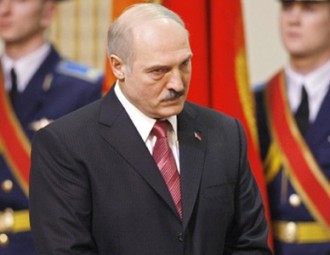Russia has established a precedent in Ukraine that could easily justify sending tanks to Minsk

Russia is Belarus’ closest ally, and the conflict in Ukraine has placed Belarus — and in particular its President Lukashenka — in a tricky position.
On January 15 the Belarusan ruble rebounded slightly in international currency markets for the first time since the Russian ruble plummeted in value in December. The gain follows emergency steps taken earlier this month by Belarus’ central bank to devalue the ruble by 7 percent, increase the main refinancing rate and add a new export tax on potash, all in an attempt to manage the fallout from Russia’s sudden economic crisis. This in turn followed a move in late December to replace Belarus’ prime minister and the head of the central bank in order to aggressively respond to the currency drop.
The close ties between the two currencies reflect the close ties between Moscow and Minsk. Russia is Belarus’ primary trading partner and closest ally, and the conflict in Ukraine has placed Belarus—and in particular its long-serving dictator, President Aliaksandr Lukashenka — in a tricky position.
Lukashenka has just witnessed two of his worst nightmares in neighboring Ukraine. First, he watched as a mass movement in the streets of Kiev overthrew Viktor Yanukovich, a fellow client of Russian President Vladimir Putin. Then the Russian Duma voted to give Putin the power to violate Ukraine’s sovereignty in order to “protect Russia’s interests and those of Russian-speakers,” which Putin promptly did. Since at least 70 percent of Belarusans are Russian-speakers (though only 8 percent are ethnic Russians), and all of Belarus lies within a day’s drive of Moscow, Russia has established a precedent in Ukraine that could easily justify sending tanks to Minsk.
-
03.01
-
07.10
-
22.09
-
17.08
-
12.08
-
30.09








































